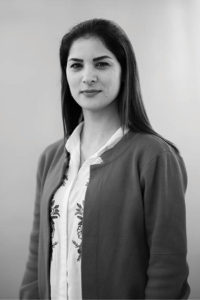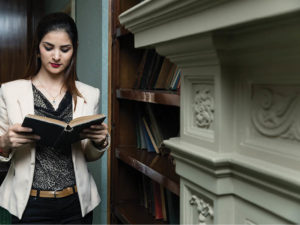In Palestine, like all young women, I am vulnerable to all kinds of violations, carried out every day by the Israeli occupation forces. This oppression deprives me of the safety and security conditions that I need as a peacebuilder and activist who is striving to improve conditions for women in my country. Additionally, I live in a patriarchal society that imposes another layer of difficulty for women.

The occupation has a disproportionately large impact on young women. Restrictions imposed by their families due to their gender, age, societal traditions, as well as patriarchal norms, stereotypes, and culture are exacerbated further when Israeli soldiers use their knowledge of this sensitive subject in Palestinian society to harass and intimidate young women.
Every day on my way to work, I must pass through Israeli checkpoints. This hindrance to the freedom of movement applies to all Palestinians who live in the occupied territories, but as a young woman and mother, I feel particularly vulnerable to abuse and humiliation by Israeli soldiers. Once, while being inspected at a checkpoint, I was forced to get out of my car, searched, and verbally harassed by an Israeli soldier in front of my five- and seven-year-old sons. Israeli soldiers searched their backpacks while pointing their weapons at us. It is difficult to describe the fear you experience when faced with an armed stranger whose only purpose is to oppress and intimidate you. More distressing was the powerlessness I felt as I was trying to protect my children. Other young women have experienced even worse. Some have been forced to give birth at a checkpoint without medical attention, were detained, denied passage, strip-searched, or killed. This fear of violence is something I and all Palestinian women carry with us every day as we move about our daily activities.
Despite the challenges and underrepresentation they face, young women can be powerful agents of social change. We have both the desire and the capacity to transform Palestinian social and political structures and are looking for opportunities to do so.
As a young woman in Palestine, however, I face double oppression. In addition to being threatened by Israeli occupation agents, I am disadvantaged, and my rights are being violated by the legal and patriarchal system in Palestine. This condition manifests in different ways. For example, in my society, young women are expected to bear the lion’s share of the responsibility for child-rearing and housework with minimal participation from their father. Additionally, in case of a divorce, young women receive support neither from society nor from the state but instead suffer from discriminatory laws that favor men when it comes to alimony, custody, and other issues.
At the political level, young women have limited opportunities for engagement in political parties, unions, or municipalities. Currently, women’s participation at the decision-making level does not exceed 1 percent, with no representation of young women. What’s more, women are excluded from participation in peace process negotiations and in talks to end the internal Palestinian division.
Two years ago, I was nominated for the post of mayor in my area’s municipality, but due to social and political pressures – mainly because I am a young woman – I was forced to withdraw from the elections. This experience, however, motivated me to work with other young people and establish a local youth council in my area that works parallel to the municipality.



